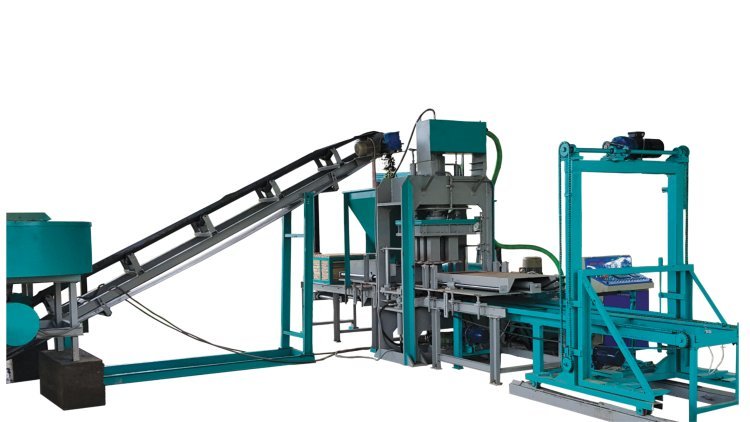Fly Ash Brick Making Machine : Benefits, Types, And Uses

The construction industry in India is booming, and with this growth comes a responsibility for sustainable practices. Brick manufacturing, a cornerstone of construction, can be a significant contributor to environmental impact. However, innovative technologies like fly ash brick-making machines offer a game-changing solution. By utilizing fly ash, a waste product from coal-based power plants, these machines create high-quality, eco-friendly bricks. Partnering with reputable brick machinery manufacturers in India can equip you to contribute to sustainable construction while reaping several benefits for your projects.
Why is Fly Ash Brick Making Machines? A Boon for India
Environmental Benefits:
Reduced Landfill Waste:
Fly ash, a byproduct of coal combustion traditionally ends up in landfills. Fly ash brick-making machines effectively utilize this waste, minimizing environmental impact.
Lower Energy Consumption:
Compared to traditional clay brick production, fly ash brick manufacturing requires less energy, reducing greenhouse gas emissions.
Sustainable Construction:
By opting for fly ash bricks, construction companies can actively promote sustainable building practices in India.
Economic Advantages:
Cost-Effective Production:
Fly ash is readily available and inexpensive, making fly ash brick production a cost-effective alternative to clay bricks. Brick machinery manufacturers in India offer machines at various price points to suit your budget.
Durable and Long-lasting:
Fly ash bricks boast superior strength and weather resistance, leading to lower maintenance costs for buildings constructed with them.
Reduced Mortar Consumption:
The consistent size and shape of fly ash bricks allow for thinner mortar layers, minimizing material usage and construction costs.
Construction Advantages:
Improved Thermal Insulation:
Fly ash bricks offer better thermal insulation compared to clay bricks. This translates to cooler interiors in summer and warmer interiors in winter, leading to energy savings on heating and cooling.
Lightweight Properties:
Fly ash bricks are lighter than clay bricks, reducing the overall dead load on a structure. This is particularly beneficial for high-rise buildings.
Faster Construction:
The uniform size and shape of fly ash bricks enable faster construction due to easier handling and laying.
Types of Fly Ash Brick-Making Machines
Brick machinery manufacturers offer various fly ash brick-making machines to suit your production needs and budget. Here's a breakdown of the main types:
Manual Fly Ash Brick-Making Machine:
- It is ideal for small-scale production or individual projects.
- It requires manual operation, making it labor-intensive.
- Lower production capacity compared to automatic or semi-automatic machines.
Semi-Automatic Fly Ash Brick-Making Machine:
- Offers a balance between automation and affordability.
- Certain processes, like material mixing, might be manual, while brick molding and pressing are automated.
- Suitable for medium-scale production requirements.
Automatic Fly Ash Brick-Making Machine:
- Most technologically advanced option with the highest production capacity.
- The entire brick production process, from material mixing to pressing, is automated.
- Ideal for large-scale production facilities and high-volume projects.
Choosing the Right Machine:
Selecting the most suitable fly ash brick-making machine requires considering your desired production volume, budget, and available workspace. Consulting with experienced brick machinery manufacturers in India will help you make an informed decision based on your specific needs.
Applications of Fly Ash Bricks in India
Fly ash bricks offer a plethora of advantages that make them ideal for various construction applications in India:
Load-Bearing Walls:
Due to their high compressive strength, fly ash bricks can be effectively used for load-bearing walls in low to mid-rise buildings.
Partitions:
Interior walls and partitions can be constructed with fly ash bricks, offering good thermal and sound insulation properties.
Cladding and Facades:
Fly ash bricks come in various finishes and textures, making them suitable for aesthetic cladding and facades.
Pavements:
The inherent strength and weather resistance of fly ash bricks makes them suitable for pavements and walkways.
By adopting fly ash brick-making machines and the resulting bricks, construction companies in India can contribute to a greener future while ensuring high-quality, cost-effective, and sustainable building practices.
What's Your Reaction?











![Wireless Connectivity Software Market Size, Share | Statistics [2032]](https://handyclassified.com/uploads/images/202404/image_100x75_661f3be896033.jpg)



